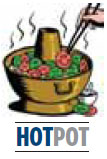Lost in translation an everyday occurrence

When my mother visited China at the age of 73, she said it was the first and would be the last time. Being an independent woman, she liked to go out by herself, without a guide or an interpreter. To her complaint, I replied: "But there is pinyin everywhere!" "Yes, but," she objected, "What is the use reading 'Youyi Binguan' if I don't know the meaning?" Good point.
Two years ago, in Hangzhou, Ningbo and Wuhan, I was asked my view on the recent standardization of topographic names. Should Minzhu Bei Lu be translated into Democracy North Rd. or North Democracy Rd.? The problem is not there, but what is the use for a foreign tourist to know that minzhu means democracy if he can't ask his way in English to a passer-by or a taxi driver? He could have more chance to get an answer if asking for Minzhu Bei Lu, whatever the tones are.
Another problem is the choice of road, avenue, boulevard, drive, street, lane, alley, for the Chinese "lu", "jie", "hutong", etc. Different names for the same Chinese word are used in translation in Shanghai, Chongqing or Beijing.















